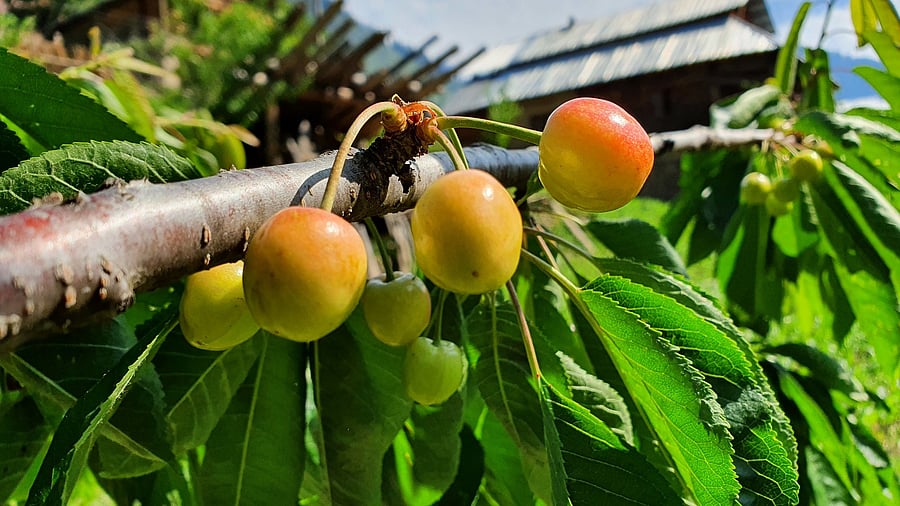
Cherries seen in Kashmir
Credit: iStock Photo
Srinagar: Cherry growers in Kashmir are set to benefit from a landmark development: the launch of the first-ever cargo train service connecting Kashmir directly with Mumbai.
The initiative offers a much-needed and cost-effective alternative to expensive air freight, which until now was the only feasible option for transporting the Valley’s highly perishable cherry harvest.
For decades, the delicate nature of cherries — prone to spoilage within days of harvest — meant that only air transport could ensure timely delivery to distant markets like Mumbai. But the high cost of air cargo has remained out of reach for most small and marginal growers, limiting their market access and income potential.
Now, in a first, the Jammu railway division has registered a VP indent — a formal request for a full parcel van — to operate from Katra to Mumbai. A consignment of 24 tonnes of fresh cherries will be transported in a refrigerated parcel van attached to a goods train, with the journey expected to take just over 30 hours.
“This train is a lifeline,” said Manzoor Bhat, a cherry grower from central Ganderbal district. “Air transport was simply unaffordable for most of us. With this cargo train, we can now think about expanding our operations.”
Bhat is hopeful that if the fruit maintains its quality during transit, the Mumbai market could open up in a significant way — even potentially enabling exports through the city’s port.
The launch comes at a crucial time, as cherry harvesting peaks across Kashmir in May and June. Stakeholders — including growers, exporters, and traders — see the train as a way to tap into new markets, minimise post-harvest losses, and improve competitiveness. Kashmir produces between 12,000 and 14,000 metric tonnes of cherries annually, depending on weather conditions during the winter and spring.
Bashir Ahmad Basheer, president of the All Kashmir Fruit Growers Union, called the new train service a major breakthrough. “The high perishability of cherries makes air cargo the only option so far, but the costs are unbearable for most growers,” he said. “Rail transport gives us a long-overdue alternative that can ease the financial burden and expand our reach.”
Basheer also revealed that they were in talks to secure additional transport options — including attaching a parcel van to Train No. 12926 (Paschim Express) from Amritsar. However, one significant hurdle remains: Indian Railways currently requires advance payment for the full 25-ton capacity of a parcel van, even if growers are unable to fill it.
“Cherry production fluctuates daily,” he said. “Being forced to pay upfront for unused capacity puts growers at a financial disadvantage. We’re in constant discussions with railway authorities to find a workable solution.”
If successful, the pilot run from Katra to Mumbai could open the doors for more regular and affordable rail-based exports of cherries and other fruits from Kashmir, transforming the region’s horticulture logistics — and possibly its economic future.